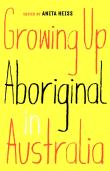'I grew up an Aboriginal Australian from the north coast of northern New South Wales - we refer to ourselves as Kooris. My grandmother Kathleen Kelly, a Gumbaynggirr woman, was born and raised on a tiny Aboriginal mission outside of Nambucca Heads called Bowraville, locally known as 'Bowra', deriving from the Gumbaynggirr place name Bawrrung. My grandparents Iris Kelly and Earl Skinner were born and grew up in the regions adjacent to the Clarence River in Bundjalung and Gumbaynggirr country. Like my family before me, I grew up on the far north coast of New South Wales, and call the regions of the north and south of the Clarence River - the Bundajalung and Gumbaynggirr nations - home. It is the place where my ancestors walked before me, where my relatives reside today, and where I visit frequently to walk on country to reaffirm my identity and learn to be a Bundjalung and Gumbaynggirr man, a Koori, an Aboriginal.' (Introduction)



